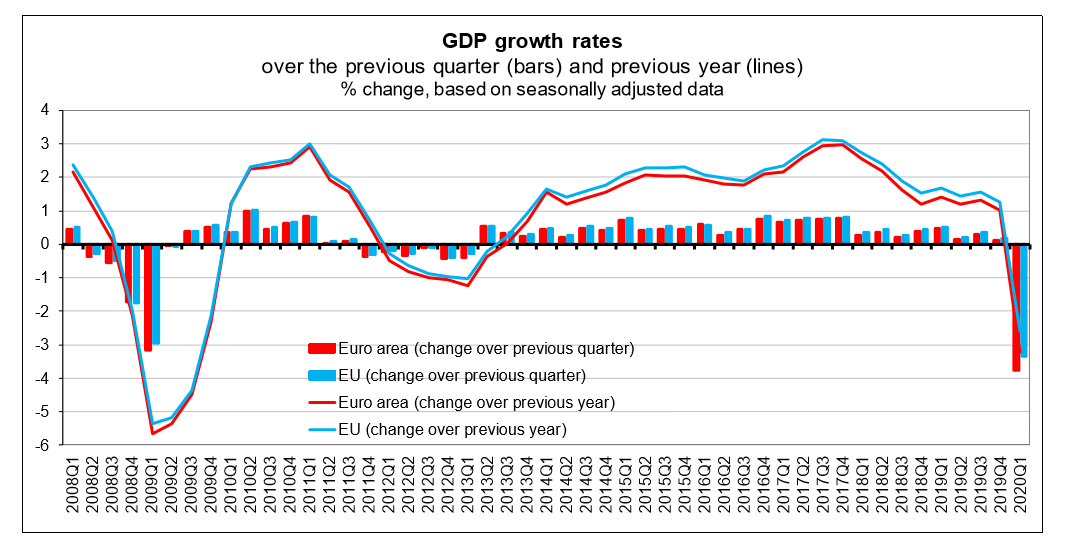GDP contracted for the European Union (EU27) by 3.3% in the first quarter (Q1) 2020 (compared to Q4 2019) and by 2.6% (compared to Q1 2019).
GDP contracted for the Euro Area or Eurozone (EA19) by 3.8% in the first quarter (Q1) 2020 (compared to Q4 2019) and by 3.2% (compared to Q1 2019).

Worst numbers ever
Quarter on Quarter, the fall in GDP was the worst for the European Union and Eurozone since records began. The Year on Year contraction was the worst since 2009.
This was unsurprising given the restrictions in economic activity around Europe in wake of the COVID-19 outbreak. The GDP numbers are expected to be much worse in Q2 2020 as the lockdowns only began in March.
Impact on member states
France (-5.8% QoQ), Spain (-5.2% QoQ) and Italy (-4.7% QoQ) were the worst impacted economies. Economic output in Bulgaria (+0.3% QoQ) and Finland (+0.1% QoQ) grew. Sweden output fell QoQ (-0.3%) but grew YoY (+0.5%) despite not locking down the economy like other European Union member states. Germany, the largest European economy contracted 2.2% QoQ.
The Eurozone or Euro area (EA19) currently includes Belgium, Germany, Estonia, Ireland, Greece, Spain, France, Italy, Cyprus, Latvia, Lithuania, Luxembourg, Malta, the Netherlands, Austria, Portugal, Slovenia, Slovakia and Finland.
The European Union (EU27) currently includes Belgium, Bulgaria, Czechia (formerly the Czech Republic), Denmark, Germany, Estonia, Ireland, Greece, Spain, France, Croatia, Italy, Cyprus, Latvia, Lithuania, Luxembourg, Hungary, Malta, the Netherlands, Austria, Poland, Portugal, Romania, Slovenia, Slovakia, Finland and Sweden. The United Kingdom officially left the European Union on January 31, 2020.